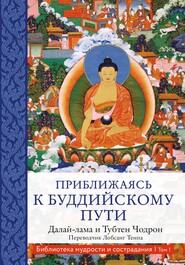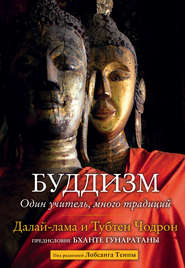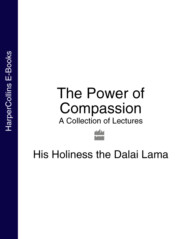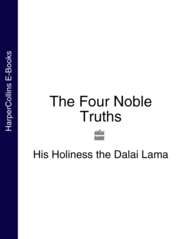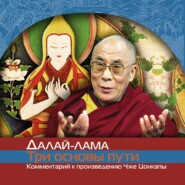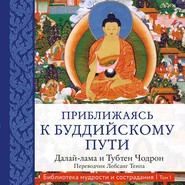По всем вопросам обращайтесь на: info@litportal.ru
(©) 2003-2024.
✖
The Dalai Lama’s Book of Wisdom
Автор
Год написания книги
2018
Настройки чтения
Размер шрифта
Высота строк
Поля
There is both positive and negative desire. For instance, the Mahayana Buddhist literature mentions two desires or two aspirations. One is the aspiration to be of benefit to all sentient beings and the other is the aspiration to attain fully the Enlightened state for that purpose. Without these two types of aspiration, the attainment of full Enlightenment is impossible. But there are also negative things which result from desire. The antidote to this negative desire is contentment. There are always extremes, but the middle way is the proper way.
The sense of contentment is a key factor for attaining happiness. Bodily health, material wealth and companions and friends are three factors for happiness. Contentment is the key that will determine the outcome of your relations with all three of these factors.
When our attitude towards our material possessions and wealth is not proper, it can lead to an extreme attachment towards such things as our property, houses and belongings. This can lead to an inability to feel contented. If that happens, then one will always remain in a state of dissatisfaction, always wanting more. In a way, one is then really poor, because the suffering of poverty is the suffering of wanting something and feeling the lack of it.
Now when we talk about objects of enjoyment or desire and material well-being, Buddhist literature mentions five types of objects of desire: form, sound, odours, tastes and tactile sensations. Whether or not these objects of enjoyment give rise to happiness, satisfaction and contentment, or conversely, give rise to suffering and dissatisfaction depends very much on how you apply your faculty of intelligence. Our behaviour in our daily lives is the key factor in determining whether these really produce genuine, long-lasting satisfaction or not. Much depends on our own attitude. And for this mental factor, motivation is the key thing.
In Buddhist literature, human life is seen as a favourable form of existence or rebirth. There are various factors that could complement the favourable existence as a human being, such as having a long life, good health, material possessions and eloquence so that one can relate to others in a more beneficial way. But whether or not these conditions lead to a more beneficial existence or a more harmful one depends very much on how you utilize them and whether or not you apply the faculty of intelligence.
Buddhist literature mentions practice of the Six Perfections. For instance, in the case of acquiring material possessions, according to Buddhism, generosity and the act of giving are seen as causes of wealth. But in order to practise generosity and giving successfully, one must first of all have a sound ethical discipline. And that ethical discipline can come about only if one has the ability to bear hardships when confronted with them. For that you also need a certain degree of joyful effort.
Вы ознакомились с фрагментом книги.
Приобретайте полный текст книги у нашего партнера:
Приобретайте полный текст книги у нашего партнера:







